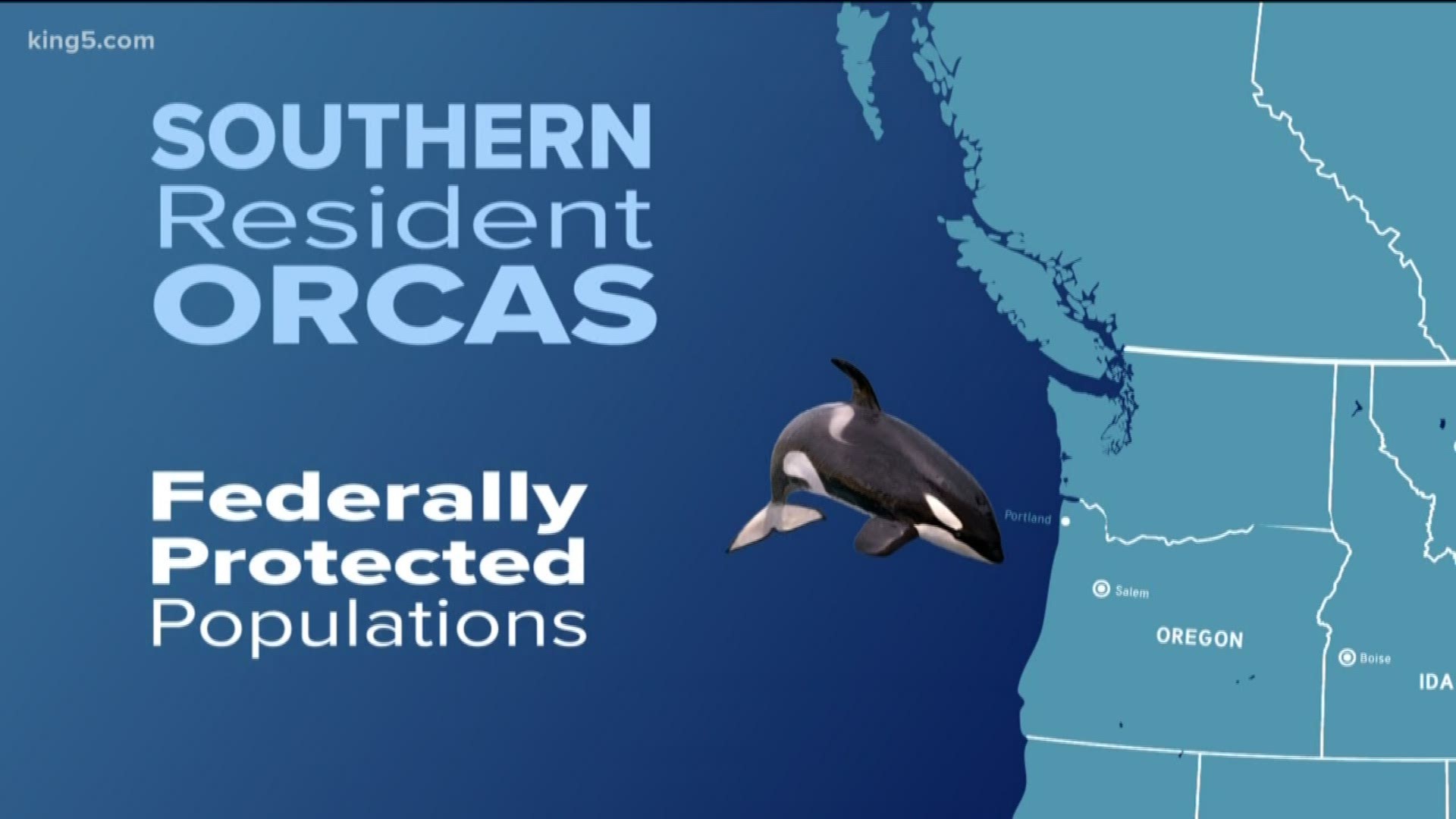The team of whale experts closely monitoring an ailing Southern Resident orca in Northwest waters passed another hurdle in their efforts to save the sick whale.
J50, the 3 ½-year-old whale, has lost 20 percent of her body mass and developed a depression near the base of her skull, which indicates severe fat loss and malnutrition. Crews already injected J50 with antibiotics on August 9.
Last weekend, researchers collected fecal samples from J16, J42, and J50.
Lab results released by NOAA Friday determined at least one of the whales has a parasite which can harm a weakened or emaciated whale.
Out of caution, NOAA is updating J50's treatment plan to include a de-wormer to fight parasites and help reduce bacterial infection.
"The worm is not usually a problem in healthy animals. But for animals that are emaciated or otherwise compromised, the parasite can penetrate the stomach lining, introducing bacterial infection to the bloodstream, or it can bore into internal organs," NOAA tweeted Friday.
Scientists and the Lummi Nation deployed live salmon to J50 off the coast of San Juan Island on August 12.
National Oceanic and Atmospheric Administration (NOAA) officials said strong currents kept them from being able to tell if J50 ate any of the eight fish deployed, but logistically, the operation was a success.
“This has never been tried before, and there were a lot of potential things that could go awry, so we were very pleased,” said Brad Hanson, a NOAA Fisheries wildlife biologist.
The priority remains to help J50 regain lost weight. On Friday, the pod was still in open waters off Vancouver Island and beyond the reach of response teams.
NOAA will continue to publish updates on Southern Resident killer whales here.

